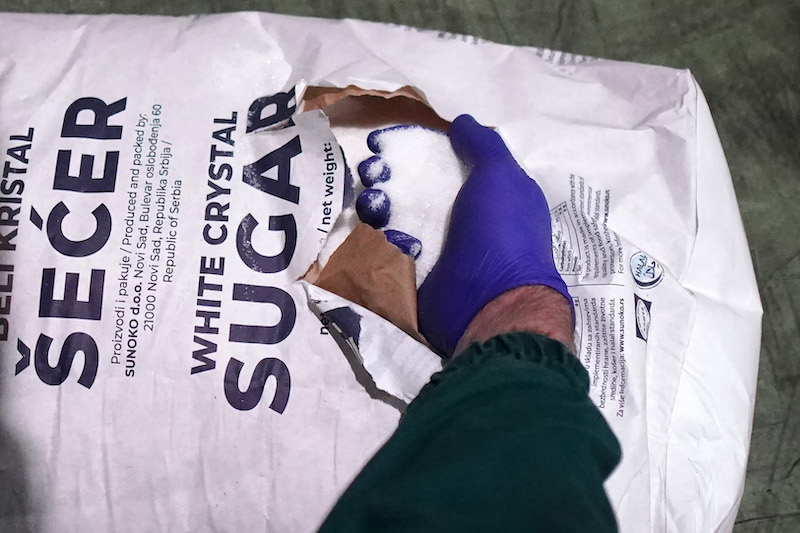World’s top sugar trader is having deja vu of an epic shortage
For global sugar markets, it’s beginning to look a lot like one of the worst shortages in history.
Consecutive years of deficits, weather damage in key crops and shipping bottlenecks are reminding the world’s top sugar trading company of 2010 and 2011, when prices of the sweetener hit a three-decade high.
“Current conditions are eerily similar,” said Mauro Angelo, chief executive officer at Alvean, a trading house controlled by Brazilian producer Copersucar SA.
The company expects a sixth straight year of deficits in the coming season as a poor outlook for India’s crops is set to drive down global stockpiles of sugar. To make matters worse, top producer Brazil is seeing a repeat of last decade’s logjams that’s keeping the world undersupplied.

“Rains in India have been horrible and water reservoirs are extremely low, so the next crop could be even worse than the current one,” Angelo said in an interview.
India isn’t expected to ship any sugar for the season that just started, a shift from two seasons ago when exports were as much as 11 million tons. That means markets are depending on Brazil, Angelo said, making prices extremely sensitive to issues like untimely rains that threaten to disrupt harvests or delay ship loadings.
Sugar is already piling in Brazilian ports when the country’s infrastructure is stretched to the maximum capacity. Bumper soy and corn crops are making the sweetener compete for space in ports and railroads, while recent heavy rains increased the amount of time ships have to wait to load.
Alvean’s CEO said he believes the logistics issues have probably prevented Brazil from shipping at least 1 million tons of sugar in October, a loss the country will hardly be able to make up in the coming months. That’s because crowded ports will not have the capacity to handle any extra volumes, and soon a new soybeans crop will be filling up storage space once again.
With little stocks held in countries that rely on imports to fulfill demand, Angelo sees the risk of supply chain disruptions.
“Consumers are delaying purchases and have been buying hand-to-month in the last months, the now growing involvement of governments in procurement and import tax reductions is an important sign of tight stocks,” he said. “The entire system is under stress.”
Similar Stories
NABTU Statement on Trump-Vance Inauguration
“North America’s Building Trades Unions congratulate President Donald J. Trump on his inauguration as the 47th President of the United States of America and Vice President JD Vance as the…
View Article
Alleima relaunches high-strength and corrosion-resistant steel for sustainable energy sectors
View Article
November 2024 Freight Transportation Services Index
View ArticleViet Nam hosts 16th United Nations Conference on Trade and Development In October 2025
UN Trade and Development (UNCTAD) Secretary-General Rebeca Grynspan announced today that the sixteenth session of the United Nations Conference on Trade and Development (UNCTAD 16) will take place in Viet…
View ArticleUnited States and Norway issue innovative report creating greater transparency in critical mineral supply chains
Today, the U.S. Department of Commerce and the Norwegian Ministry of Trade, Industry, and Fisheries issued a thorough, innovative report presenting our shared understanding of non-market policies and practices (NMPPs)…
View ArticleDecember CNBC/NRF retail monitor results show strong growth boosted by final Thanksgiving weekend days
Retail sales jumped strongly in December, boosted in part by two busy holiday shopping days during Thanksgiving weekend falling in the final month of the year, according to the CNBC/NRF…
View ArticleGet the most up-to-date trending news!
SubscribeIndustry updates and weekly newsletter direct to your inbox!





